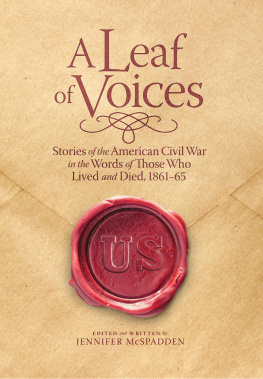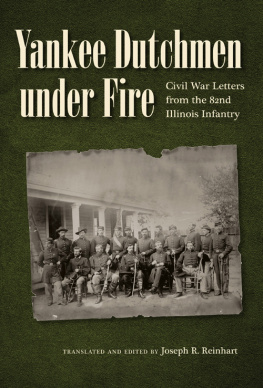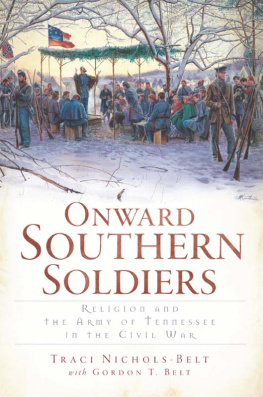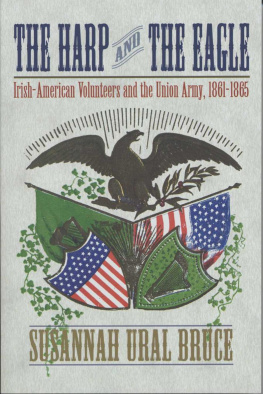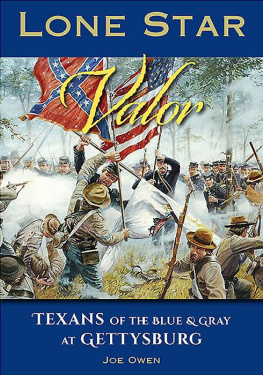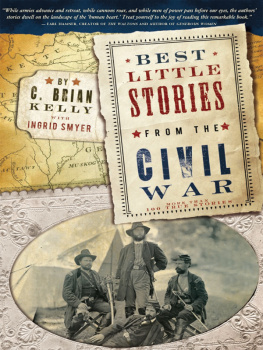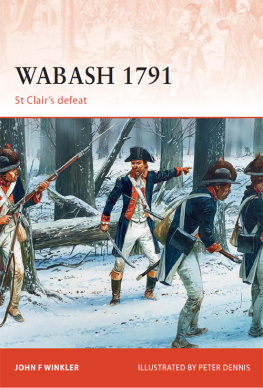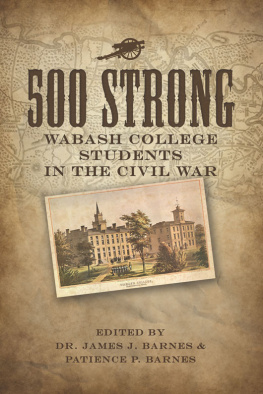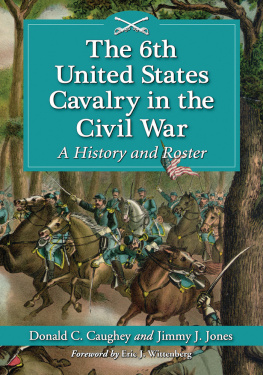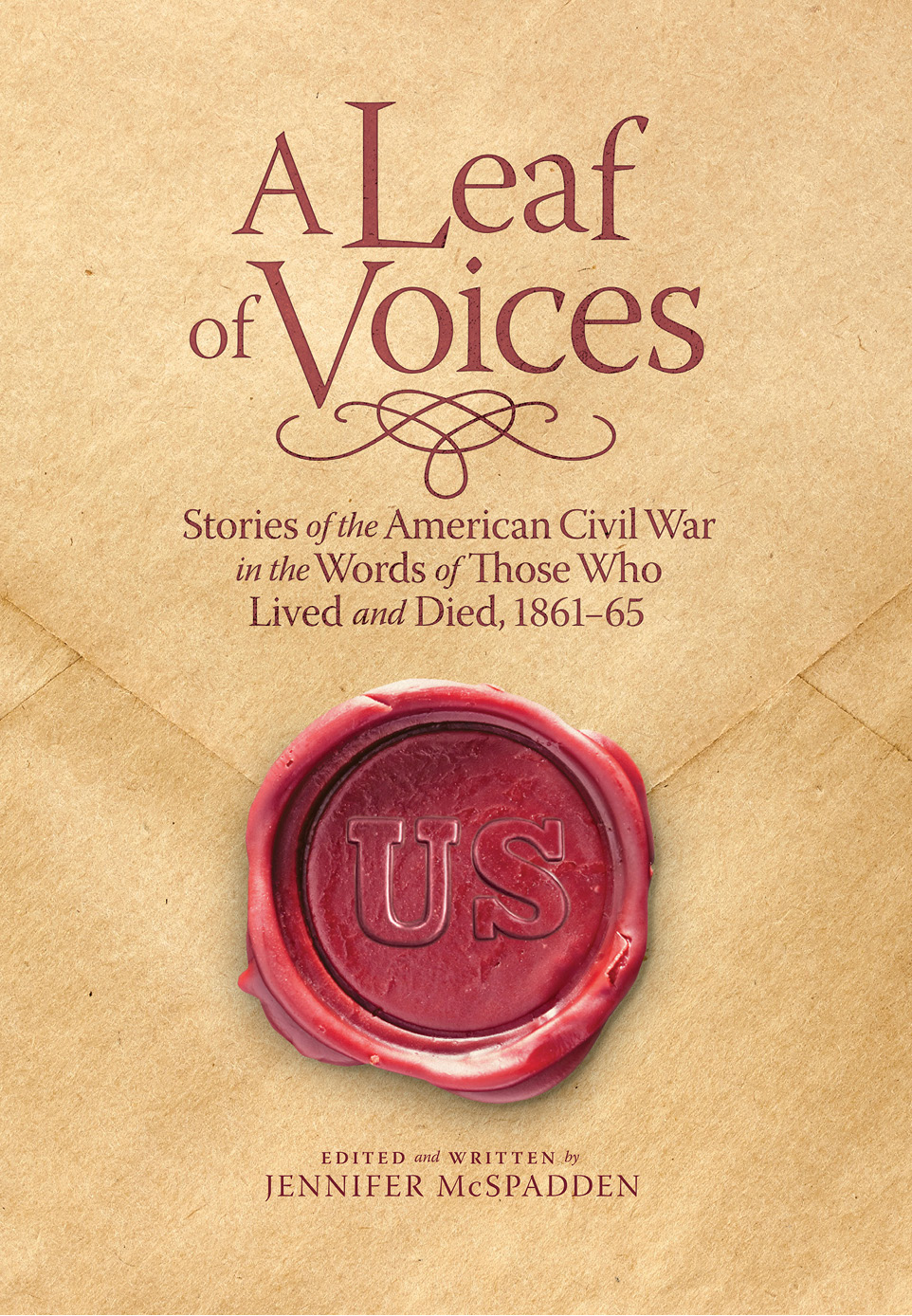
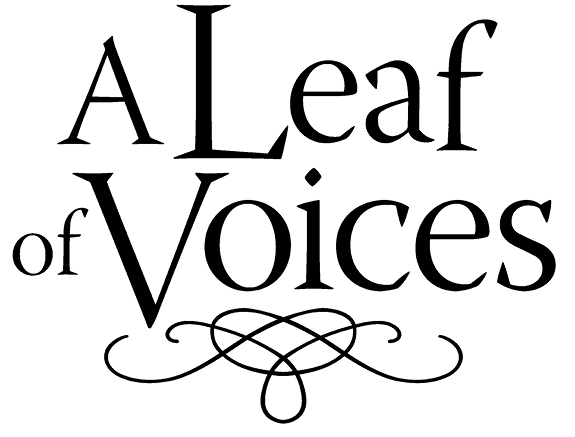
Stories of the American Civil War in the Words of Those Who Lived and Died, 186165
Edited and Written by
Jennifer McSpadden
Indiana Historical Society Press 2014
2014 Indiana Historical Society Press
This book is a publication of the
Indiana Historical Society Press
Eugene and Marilyn Glick Indiana History Center
450 West Ohio Street
Indianapolis, Indiana 45202-3269 USA
www.indianahistory.org
Telephone orders 1-800-447-1830
Fax orders 1-317-234-0562
Online orders @ http://shop.indianahistory.org
McSpadden, Jennifer.
A leaf of voices : stories of the American Civil War in the words of those who lived and died, 1861-65 / edited and written by Jennifer McSpadden.
pages cm
Includes bibliographical references and index.
ISBN 978-0-87195-360-5 (cloth : alkaline paper)
1. United StatesHistoryCivil War, 1861-1865Personal narratives. 2. Indiana
HistoryCivil War, 1861-1865Personal narratives. 3. SoldiersIndiana
Correspondence. 4. United States. ArmyMilitary lifeHistory19th centurySources. 5. United StatesHistoryCivil War, 1861-1865Social aspects. 6. IndianaHistoryCivil War, 1861-1865Social aspects. I. Title.
E464.M39 2014
973.71dc23
2014003229
No part of this publication may be reproduced, stored in or introduced into a retrieval system, or transmitted, in any form or by any means (electronic, photocopying, recording, or otherwise) without the prior written permission of the copyright owner.
Now I make a leaf of Voices
for I have found nothing mightier than they are,
And I have found that no word spoken,
but is beautiful, in its place.
Walt Whitman
In memory of my grandfather, Alfred Master, 18831978
Contents
Preface
In early 2008 I had been working as a volunteer at the Wabash County Historical Museum in Wabash, Indiana, for several months. That spring it came to light that there was no memorial listing all those from the county who had given their lives in the Civil War. The only memorial was a stone column at Center Grove Cemetery, near the Huntington County line A memorial to the Unreturned Soldiers of this vicinity in the War for the Union 186165 By Comrades and Friends. The forty men named were from Wabash and Huntington Counties.
It became my project to research every possible source to trace names of those who had died in the war and to compile a comprehensive list in order to establish a memorial to them. The museum has a We Honor Wall that listed the countys dead from the Mexican War to current conflicts, but no names for the Civil War.
On Veterans Day 2010, the museum unveiled an updated We Honor Wall that now includes the names of 380 who gave their lives from 1861 to 1865. That number was more than for all other wars combined. Although it may seem an unusually high number, the U.S. Census of Wabash County showed a population of 17,547 in 1860, so the fatality rate of approximately 2 percent was in line with nationwide figures.
In addition to military records such as the multivolume Report of the Adjutant-General of the State of Indiana by W. H. H. Terrell, much of the information about those who died could be found in the local newspapers of the time and other archival materials in the museum. The newspapers became vital in my research. Obituaries, letters, and news items filled in some of the gaps left in the military records.
Many of the soldiers, with time on their hands between battles and marches, wrote their thoughts in letters home to relatives, friends, and often directly to the newspapers. The letters came from men of all walks of life and give fascinating details about their everyday routines and their opinions about the monstrous rebellion. The more I read these letters the more I realized how important they are in not only giving eyewitness accounts of battles, but also for giving us glimpses into the soldiers innermost thoughts.
In order to maintain the original tone of the letters, I have not changed the spelling or language as originally published. During that time the language and spelling was still somewhat flexible; many people even used different versions of their own names. Some words are now archaic or have altered meanings. For example, the word recruit was sometimes used to mean recover, as in He was sent home to recruit his health.
I have also kept the words and phrases used by the soldiers to describe the slave population they encountered. Words we would consider unsuitable or unacceptable in our modern world were not used then to be insulting or derogatory. The Northern soldiers did not always know how best to describe the former slaves, but the contexts were always sympathetic whatever the terms used.
Acknowledgments
First of all, my thanks to Jim Ridenour, whose words inspired me to become a volunteer at the Wabash County Historical Museum, starting me on a path that led to this book. Because of him I have made many new friends not only in the present but also from a time long ago.
My thanks also to everyone at our wonderful museum particularly Tracy Stewart, former executive director of the museum, who gave me so much encouragement, and archivist Heather Allen who helped me find the Civil War sources I needed. Also Bill Stouffer for showing me the Center Grove memorial, the ever-helpful staff of the Wabash Carnegie Public Library, Wabash County Courthouse, and Michele Hughes at the Doctor James Ford Historical Home. County historian Ron Woodward, Ford family historian Susan Neff, photographer Harold V. Chatlosh, and Nancy Reed in North Manchester, all contributed in some way to this project.
Gratitude also to Richard E. Ford for his help and interest, and Bill Wimberly for being the trailblazer and encouraging my efforts!
For information outside Wabash County I am grateful to the helpful ladies of Rush County, Indiana, at the Courthouse, the Rushville Library, and East Hill Cemetery in Rushville, Pat Ward of the Phillips County Library in Helena, Arkansas, who gave me useful information about the part Helena played in the war, and Robert Neumann of the Greene County, Missouri, Archives and Records Center.
My first-time venture into the publishing world was a great experience thanks to editors Kathy Breen and Ray Boomhower at the Indiana Historical Society Press.
Above all, I owe the most to my husband, Joe McSpadden, who is my rock, and my son, Richard Swartz; their love and support mean more to me than words can say.
Prologue
During the war years of 1861 to 1865, the two weekly newspapers in Wabash County, the Wabash Weekly Intelligencer and the Wabash Plain Dealer , frequently printed letters from those away from home. Many were from the soldiers themselves.
The letters give fascinating insights into a bygone age. The letter writers were young and old, soldiers, doctors, ministers, officers, enlisted men, and even a young drummer boy. They are a remarkable cast of characters who opened their hearts to us through the years of their struggles.
The newspapermen themselves sometimes became participants in the war and were valuable correspondents. William C. McGonigal was the founder of the Plain Dealer in 1859. After the war started he sold the newspaper and joined the Union army. He was a frequent correspondent, and his letters are full of interesting stories. Stockton Campbell, a former editor at the Plain Dealer , was also a frequent and detailed letter writer. He survived the war and took up his old post at the newspaper.

